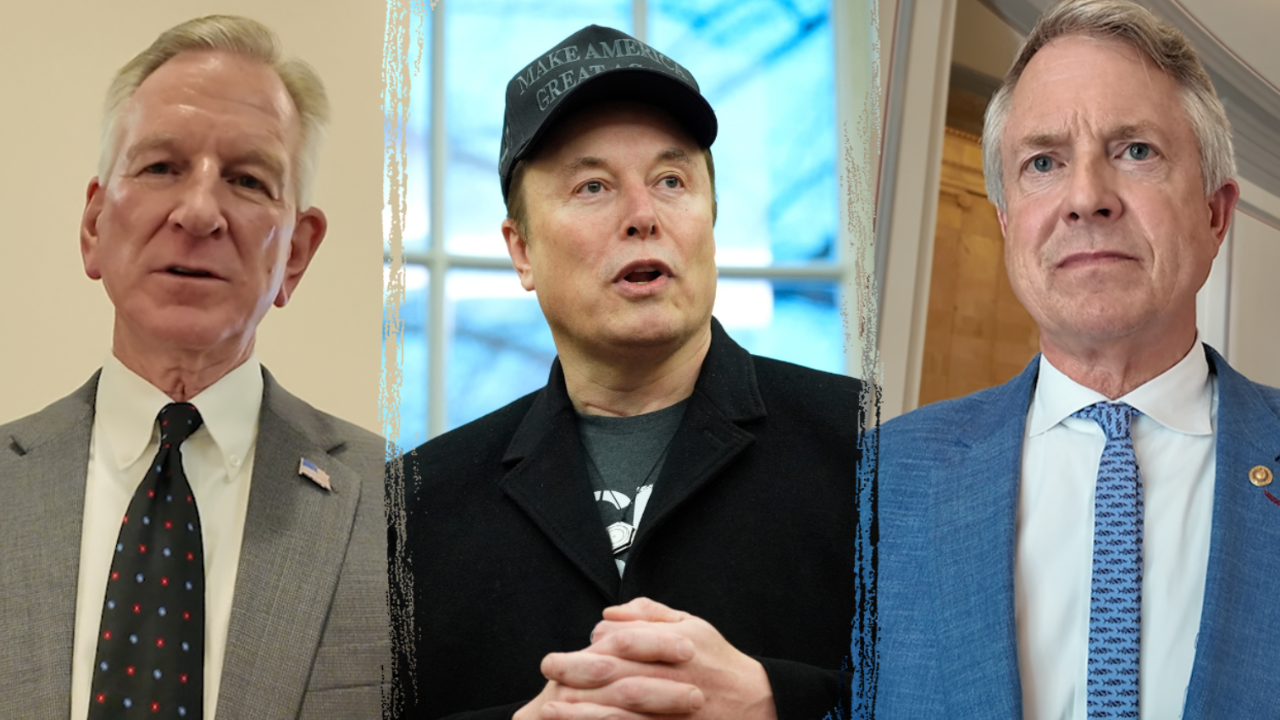Elon Musk’s escalating attacks on President Donald Trump’s “One Big Beautiful Bill Act,” a sweeping tax and spending package, have sparked varied responses from GOP senators, with some dismissing his threats to fund primary challenges in 2026, while others acknowledge his influence but remain committed to passing the bill by Trump’s July 4, 2025, deadline. Musk, who called the bill a “disgusting abomination” and vowed to unseat supporters, has deepened rifts within the Republican Party, emboldening fiscal hawks and complicating Senate negotiations. This article examines senators’ reactions, the bill’s context, and implications, drawing on sources like Fox News, NBC News, and The New York Times.
Musk’s Threats and GOP Senators’ Responses
On June 30 and July 1, 2025, Musk intensified his criticism of the bill, which extends Trump’s 2017 tax cuts, boosts military and border security spending, and raises the debt ceiling by $4–5 trillion, adding $2.4–$3.3 trillion to the deficit over a decade, per CBS News and The Guardian. Posting on X, Musk called it “political suicide” and threatened, “Every member of Congress who campaigned on reducing government spending and then votes for the biggest debt increase in history will lose their primary next year if it is the last thing I do,” per ABC News. He also endorsed Rep. Thomas Massie (R-Ky.), who opposed the bill, and floated an “America Party” if it passes, per Politico.
GOP senators’ responses, as reported by Fox News on July 1, 2025, reflect a mix of defiance, pragmatism, and cautious alignment:
- Sen. Roger Marshall (R-Kan.): Dismissed Musk’s threats, telling Fox News Digital, “I’ll take President Trump’s endorsement over Elon’s any day of the week back home.” He emphasized the bill’s role in advancing Trump’s agenda of border security and prosperity, stating, “Elon’s continuing his little spat, we are ignoring him,” per Fox News.
- Sen. Jon Hoeven (R-S.D.): Rejected Musk’s deficit concerns, arguing the bill’s tax cuts and deregulation would drive revenue growth, reducing the deficit. He said, “I think we’re opening the door to a new golden era,” per Fox News.
- Sen. Tommy Tuberville (R-Ala.): Brushed off Musk’s influence, telling NBC News, “He doesn’t get to vote,” and emphasizing the Senate’s focus on passing the bill, per. In a video posted by @GrabienMedia on X, Tuberville acknowledged Musk’s $250 million political spending but downplayed its impact, saying, “That’s a lot of money, 51 of us,” per.
- Sen. Ted Cruz (R-Texas): Conceded some validity to Musk’s concerns, telling NBC News, “The Senate should make the bill substantially better, and I hope we will.” He advocated for deeper spending cuts, aligning partly with Musk, per.
- Sen. Rand Paul (R-Ky.): Strongly supported Musk, posting on X, “I agree with Elon. We have both seen the massive waste in government spending and we know another $5 trillion in debt is a huge mistake,” per Politico. Paul told CNN he cannot support the bill with the debt ceiling hike, per.
- Sen. Mike Lee (R-Utah): Echoed Musk’s call for improvements, replying on X, “The Senate must make this bill better,” and reposting Musk’s critiques, per.
- Sen. Ron Johnson (R-Wis.): Opposes the bill unless spending is cut to pre-pandemic levels, aligning with Musk’s fiscal concerns, per NPR.
- Sen. Thom Tillis (R-N.C.): Announced he will not seek re-election in 2026, citing opposition to Medicaid cuts that threaten rural hospitals, indirectly aligning with Musk’s job loss warnings, per NBC News.
- Senate Majority Leader John Thune (R-S.D.): Downplayed Musk’s influence, calling it a “difference of opinion” and citing outdated Congressional Budget Office (CBO) data. Thune insisted on passing the bill by July 4, telling reporters, “We have a job to do,” per Reuters.
Context of the Bill and Musk’s Influence
The “One Big Beautiful Bill Act,” which passed the House 215–214 in May 2025, includes $4.5 trillion in tax cuts, $9.4 billion in DOGE-inspired spending cuts, and reductions to Medicaid, SNAP, and clean energy incentives, per PBS. Its $4–5 trillion debt ceiling hike has drawn fire from fiscal hawks like Paul, Lee, and Johnson, amplified by Musk’s X posts, per BBC. Musk, who spent $250–$300 million supporting Trump and GOP candidates in 2024 via America PAC, claims the bill undermines DOGE’s $190 billion in cuts, per The Washington Post.
Musk’s threats carry weight due to his financial clout and X’s reach (200 million followers), but GOP senators like Marshall and Thune prioritize Trump’s agenda, per Fox News. House Speaker Mike Johnson called Musk “terribly wrong,” noting a prior “friendly” call, per CNN. Democrats, like Sen. Chuck Schumer, capitalized on Musk’s criticism, with Schumer displaying Musk’s posts to argue the bill’s flaws, per The New York Times.
Implications and Public Sentiment
Musk’s threats could disrupt GOP unity in the 2026 midterms, especially with his $275 million political fund, per Review Journal. However, senators like Tuberville and Hoeven suggest his influence may be overstated, as Trump’s endorsement holds more sway with GOP voters, per Fox News. X posts reflect division: @josemerced noted Musk’s fury over removed AI tax protections, while @GrabienMedia highlighted Tuberville’s dismissal, per. The CBO’s $2.4–$3.3 trillion deficit estimate bolsters Musk’s case but faces GOP rebuttals claiming growth will offset costs, per Time.
What This Means
The Senate, with a slim 53-seat GOP majority, can lose only three votes to pass the bill, assuming unified Democratic opposition, per BBC. Musk’s attacks, emboldening Paul, Lee, and Johnson, risk derailing it unless amendments address deficit concerns. For now, Thune and Trump are pushing forward, but Musk’s threats could reshape GOP primaries if the bill passes. Follow updates on www.foxnews.com or X, and monitor Senate votes on www.congress.gov for developments.
Word count: 599
